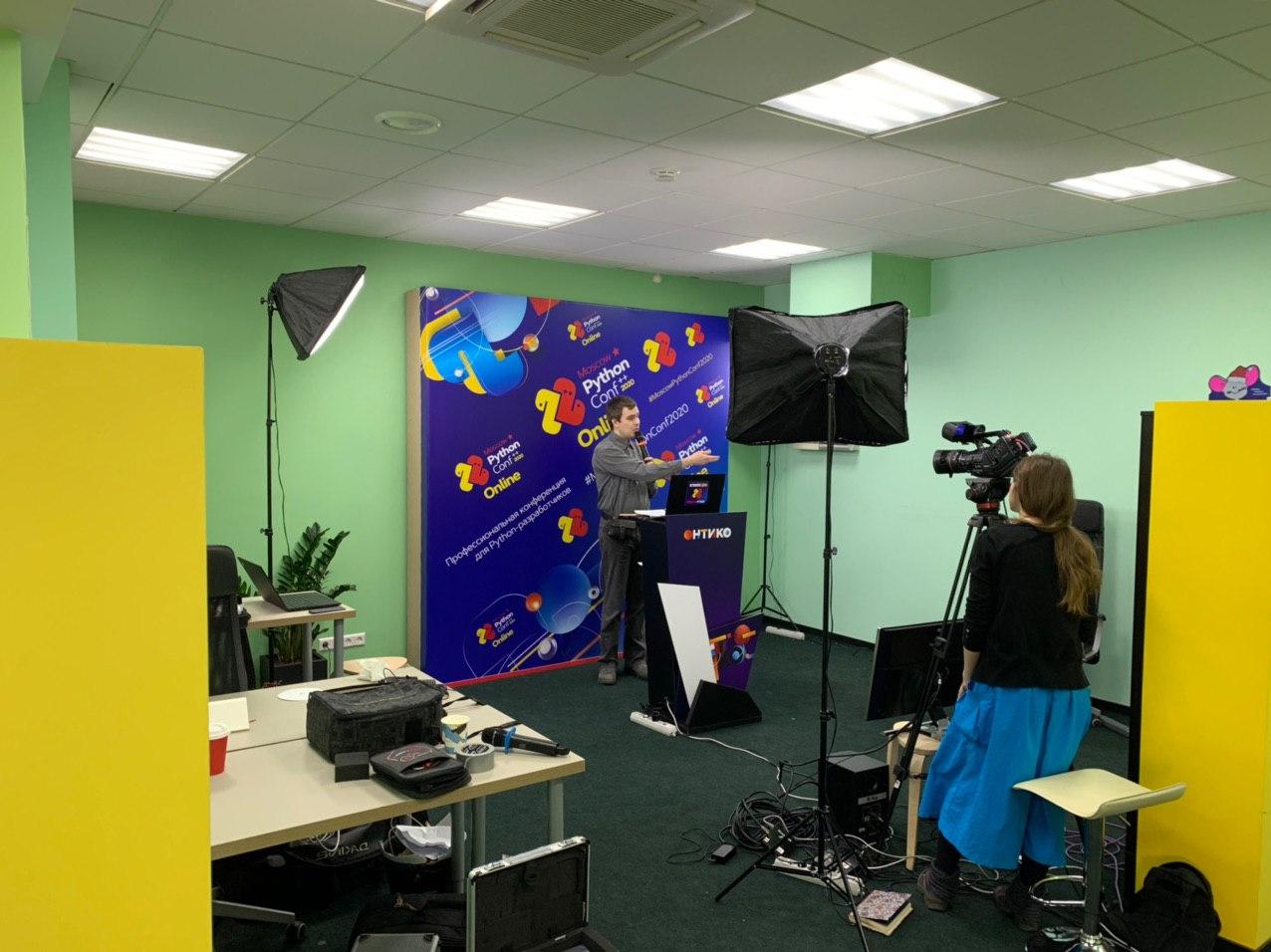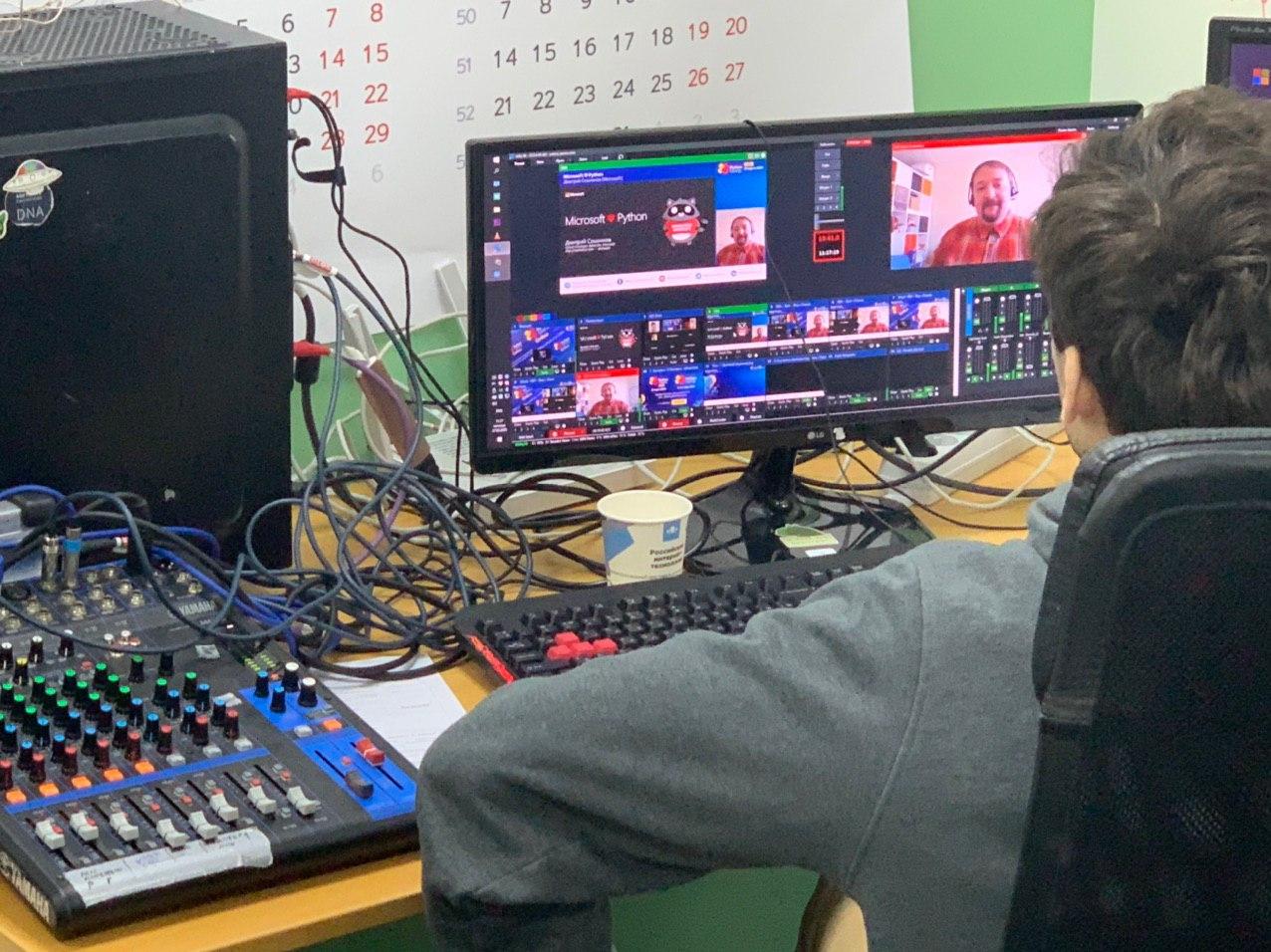Online mode: How to successfully host a virtual conference
Remote user conferences are the future — as we are living in a world where technology allows you to exchange information and communicate with others around the globe, without ever leaving your home.
Until recently, it seemed that working remotely, and, especially, holding public events virtually, was something completely new and fresh. Something from the future. Now it is becoming the daily reality, and it is exciting to observe the evolution of the idea of holding events remotely.
We are living in a world where technology allows you to exchange information and communicate with others around the globe, without ever leaving your home. It is time for conferences to adapt to this new way of life. Remote user conferences are the future.
So, we wondered, what if you could generate the immense value of a conference, but without the downside of it being resource-heavy? This year, along with our colleagues, we helped to hold two key Russian programming conferences virtually: the Moscow Python Conf and the GopherCon.
Moscow Python Conf and GopherCon going online
Moscow Python Conf focuses on the Python programming language and ecosystem: the language itself and it's evolution, package and dependency management, backend network services, modern web applications, AI/ML, DevOps, automated testing, hardware and IoT, information security, cross-platform app development, and database usage.
Just a couple of weeks before the event, it became clear that all public events in the city would soon be banned. After discussing the situation with the team, the decision was made to take on the challenge of revising the program for a fully remote audience and selecting new tools for organizing the process online.
The live stream was done through SBTG, while the speaker’s face and screen were captured with Zoom. All Q&A sessions were also done in Zoom. Participant communication during the conference was carried out in Discord. Speakers were asked over 70 questions in discussion areas, and the discussions lasted more than 2 hours after reports. There also was a number of online consultations on Python development issues. The 2020 virtual Python web conference felt almost just like the previous offline conferences!
The participation in the online conference was free for all the ticket holders of the offline version of Moscow Python Conf, and the offline conference was rescheduled to September 15.


Speaking about the GopherCon Russia 2020, a couple of different options were offered to the participants of the Golang conference. They could either participate in the GopherCon online conference and receive a package with the legendary merch kit (Gopher toy and anti-virus t-shirt), along with a 30% discount on GopherCon Russia on August 8, or save their tickets and only participate in the offline GopherCon Russia 2020 conference, or just get a full refund. To our surprise, a huge number of people decided to attend the online conference, and we were happy to give them that unforgettable experience!
RubyRussia 2020 online
We thought about canceling the Ruby Russia 2020 conference when the situation in the event industry became unpredictable.
First, there used to be offline and online events, people could choose a convenient format. This year everyone has been hit by a bunch of online events, many of which have become free. If earlier we followed the speaker's calendar in order to invite them, now we have to look for an empty slot in the viewer's calendar.
Secondly, the specifics of online are completely different. Leaving a room in the middle of a speech is embarrassing, but just closing the tab is very easy. And this means that you need to come up with something supernatural to keep the attendees' attention.
We received incredible community support and realized that people were still waiting for Ruby Russia. Of course, we had to give up something - there were no speakers from abroad at the conference, and the reports were pre-recorded.
- The lecture part covered only acute topics. We've turned it from 20 hours of training to 3 hours of Friday night entertainment.
- Thanks to the tulu.la platform, we were able to keep people focused on what was happening. The viewers did not have to be distracted by the complex interface of the program, they could focus on discussion and communication.
- The second half of the conference was practical - the Ruby fans participated in workshops and applied fresh knowledge in practice. After the workshops, they had another week of communication with the speakers and homework.
If in 2019 we collected more than 800 programmers, then this year we attracted more than 600. But our task was not to brag about registration numbers but to hold a quality event. And we succeeded.
I'm not a big fan of online format, but many of my colleagues spend 90% of their time working remotely from home. A conference is a chance to go out, talk, and broaden their horizons. It’s like a noisy holiday on our introvert street. The online format cannot completely replace offline, but it can solve some of the tasks that conferences do: listening to reports, learning new trends, asking questions to experts and colleagues. And drinking beer at an online afterparty in front of the monitor is an unforgettable experience that everyone should have by the end of quarantine!
What does it take to run a great virtual conference?
Through this process, we developed an efficient virtual event management system and learned quite a bit about the virtual conference best practices. If you are planning to host a virtual conference, these are some key aspects that you should focus on:
- Study the specifics of working with an audience online. You’ll need to learn how to interact online, what tools will work best for your situation, and, most importantly, how to keep the attention of your audience.
- Make sure that the participants are the same people who registered. The participants should be approved by request, so they can’t just pass the link to a colleague or friend.
- Ensure the live streaming quality of the feeds of both the slides and the presenter.
- Provide an opportunity for group discussion and panel sessions where a series of people present.
- Provide the participants with a way to chat, ask questions, and interact.
- Create an intuitive website or landing page with the schedule and links to all the streams and presentations.
- Take care to avoid losing people during breaks, or even during the event. Disconnecting from a live stream is a million times easier than getting up and leaving the front row in an audience of 1,000 people.
- Develop some activities for the attendees, so that each person on the other side of the screen feels that they are noticed and important. They are used to offline events, where they are actively interacting with other people.
- Think of creative, alternate ways to leave a memory of the event, since there is no way to take a group photo of all the participants, like at an offline conference.
The online events tools
When choosing the tools to hold an online conference and host remote presenters or speakers, it’s vital to keep these requirements in mind:
- The fewer tools the better — it can be difficult for participants to switch between different video conference software tools, and you can lose attendees due to technical problems.
- Simplicity — ideally, your virtual conference tools can be used without prior registration.
- Familiar to the participants — if your audience already uses the virtual conference platform for other purposes, then no additional time is required to understand the interface and functionality.
We recommend using Zoom as the main space for work, and Discord as a platform for collaboration. You can make announcements on your social media platforms, like Facebook or Twitter, prepare the “handouts” in Google Docs, establish communication with the participants in a channel and chat in Telegram, and send the recordings of the keynotes to the participants via email.
The conclusion
We’ve all felt the coronavirus's effect on the tech industry, and, due to the circumstances, it is likely that live streaming virtual conferences will become a major tech trend of 2020. While there are some downsides to holding fully online conferences, there are also numerous benefits to virtual events. In addition to our Golang Conf and Moscow Python Conf, there are many more scheduled tech conferences in 2020 that will likely be moved online. If you are planning to host a virtual conference, we hope that these tips will help make your event a success. If you have any questions for us, just head over to our contact form, and we’ll be in touch.
